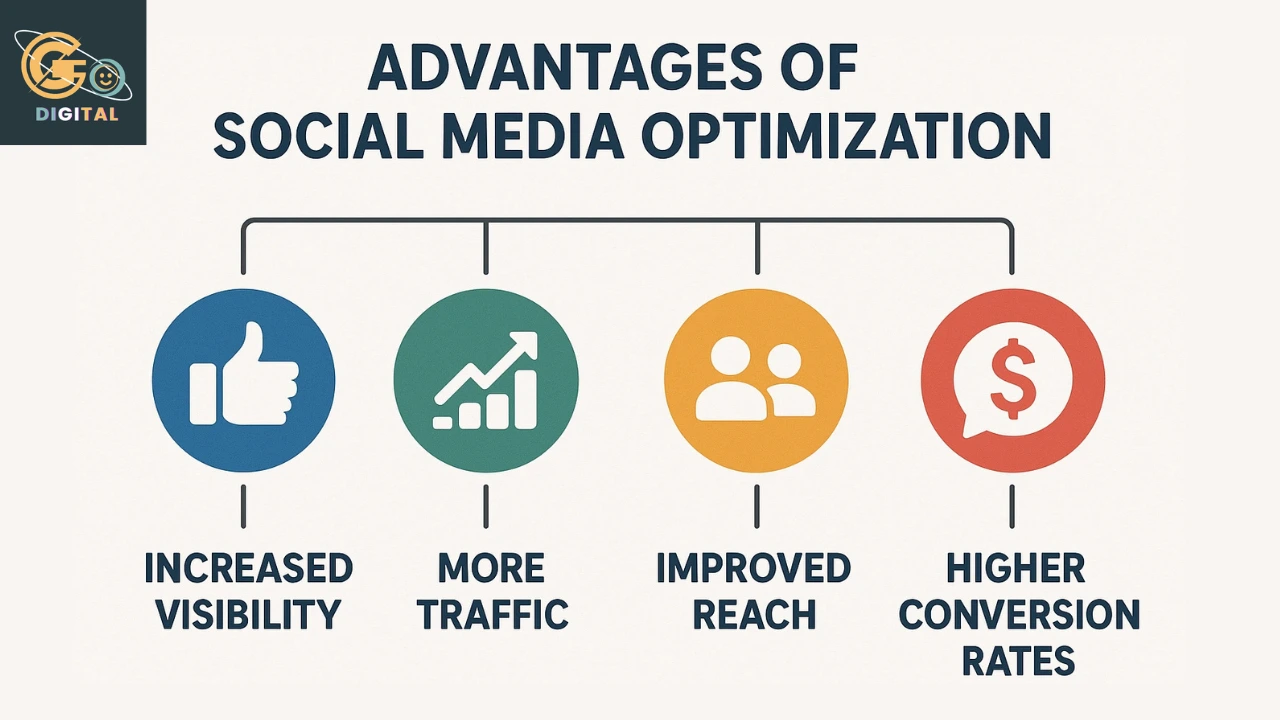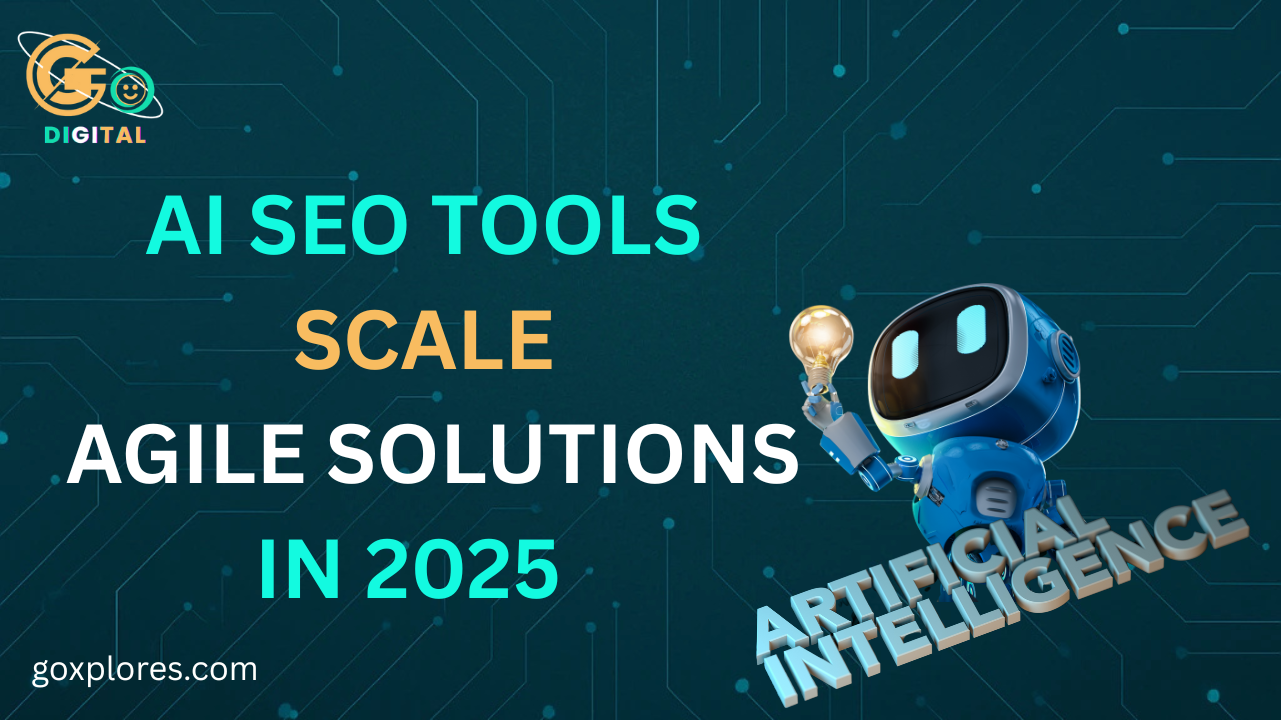
Social Media Optimization (SMO) goes beyond regular posting—it’s a powerful strategy to increase brand visibility, drive user engagement, and strengthen...
In a small co-working space in Delhi, a determined digital strategist named Rohan sat in front of his laptop, staring at a Google Sheet full of content ideas, technical audits, and traffic reports. He had just launched a new SEO campaign for a startup client, and the pressure was on. The client wanted fast results, streamlined work, and scalable outcomes.
Rohan had been in the SEO industry for four years, but the game had changed. Traditional methods were no longer enough. Clients had begun to demand solutions that were not only quicker but also more intelligent and highly accurate in meeting their needs. He knew the answer was in the evolving world of artificial intelligence, but the question he kept asking himself was this:
How can AI SEO tools scale agile solutions?
Table of Contents
Toggle
This question led Rohan on a journey that changed the way he worked. It helped him deliver faster and more impactful results not only for his clients but also for his own brand-building projects. If you have ever wondered how to make your SEO process more agile, automated, and data-backed, this story is for you.

Before diving into the AI tools, it is important to understand the meaning of agile solutions in the context of SEO. Agile SEO is not about rushing things. It is about adapting quickly, making small consistent improvements, testing often, and using real-time feedback to drive performance.
In traditional SEO, you may spend months building links or writing content and then wait to see results. In agile SEO, you break the process into small sprints, execute changes quickly, and measure what works.
AI helps by accelerating this loop. It processes huge amounts of data, suggests improvements, and even takes actions automatically. This is what Rohan wanted: smarter workflows and quicker results.

Rohan came across an article that said AI is now being used in every stage of SEO. From keyword research to competitor analysis, from content writing to user behavior tracking, AI tools are becoming essential.
But the real benefit? Scaling is the Answer.
With limited hours in a day, Rohan could only do so much. But with AI tools, he could multiply his impact, increase his content output, and refine his strategies with machine-driven accuracy.
Let us walk through the exact tools and steps he used, with simple examples to show how each one helped scale his SEO work.
Rohan began with Surfer SEO. It is an AI-powered tool that helps analyze what is ranking in search engines for a given keyword. More importantly, it tells you exactly what type of content you need to create.
How Rohan Used It:
He entered a relevant search term like “top CRM tools suited for growing startups” while working on a SaaS client’s project, aiming to uncover what kind of content was already ranking and how competitors were positioning their solutions. Surfer SEO scanned the top 10 Google results and returned data on:
This gave Rohan a blueprint. Instead of guessing, he followed the structure the tool provided and created a blog that ranked on page one in just a few weeks. This was a major boost to his agile SEO efforts.
Next, Rohan explored Jasper, an AI writing assistant that can generate blog posts, ad copy, meta descriptions, and more. But Rohan did not just copy-paste what Jasper created. He used it to save time on first drafts and then added human insight.
How Rohan Used It:
For GoXplores Digital’s SEO service page, Rohan used Jasper to create an introductory paragraph. He typed a prompt like:
“Write an introduction about how local businesses in India can benefit from search engine optimization.”
Jasper returned a well-written paragraph. Rohan then added real client examples and localized language to make it resonate with his audience. Tasks that once consumed nearly two hours were now completed in just thirty minutes, without compromising on quality.
MarketMuse helps with content planning and authority building by analyzing top-ranking content and suggesting topic clusters to improve your site’s topical relevance.
How Rohan Used It:
For a travel blog client, he analyzed the keyword “best treks in Himachal Pradesh.” MarketMuse suggested related subtopics like “safety tips,” “budget planning,” and “gear checklist.”
Rohan turned this into a content cluster:
Internal linking between these pages created SEO depth and improved site structure, which boosted rankings for all the pages together.
Although creating great content is essential, the real backbone of SEO lies in the technical setup of a website. To make sure everything was functioning smoothly behind the scenes, Rohan relied on tools like Screaming Frog and Sitebulb. These tools helped him scan websites thoroughly and uncover hidden issues such as:
How Rohan Used It:
While auditing an ecommerce website, he discovered through Screaming Frog that more than 400 product pages were missing H1 headings—a critical issue affecting the site’s SEO clarity. He generated a bulk export, worked with the developer to fix the issue, and saw a visible jump in product page impressions in Google Search Console within two weeks.
Link building was always time-consuming for Rohan. Postaga changed that. It uses AI to find link opportunities, write outreach emails, and track responses.
How Rohan Used It:
He wanted backlinks for a guide on influencer marketing. Postaga scanned the web for blogs that mentioned “Instagram influencer tips” and generated a list of contacts.
Then, it auto-filled a polite outreach email that he could customize slightly and send in bulk. Out of 50 emails, he received 8 quality backlinks, which helped improve domain authority quickly.
Alli AI is one of the most powerful tools for automating changes directly on websites. It allows you to push title tag edits, meta updates, and schema changes at scale without needing a developer.
How Rohan Used It:
When working with a startup that had a large catalog of product pages, he turned to Alli AI to efficiently manage and optimize them at scale.
This saved weeks of manual work and helped deliver results fast, which was exactly what agile SEO demands.
Rohan also cared about what happened after users landed on the site. Plerdy provided heatmaps, scroll data, and click tracking to understand user behavior.
How Rohan Used It:
On one blog, he noticed users were not scrolling past the first paragraph. The heatmap confirmed most people bounced within 10 seconds.
He changed the introduction, added a value-driven headline, and shortened the paragraph. Bounce rate dropped, and time on page increased by 40 percent.
These small data-led changes had a major impact on user signals, which also affect SEO rankings.
Finally, Rohan wanted to show results. He used DashThis to build visually appealing SEO reports by bringing together insights from tools like Google Analytics, Search Console, Ahrefs, and several others—all in one place.
How Rohan Used It:
Instead of sending clients a raw spreadsheet, he created a dashboard showing:
Clients loved the visual clarity, and Rohan saved time by automating report generation every week.
The Final Lesson Rohan Learned
AI SEO tools do not replace human strategy. But they do one thing exceptionally well — they help scale agile solutions.
With these tools, Rohan:
Whether you are an agency, a freelancer, or a business owner, AI tools can help you move faster, work smarter, and stay ahead of your competition.
Conclusion
So, when Rohan asked himself how AI SEO tools scale agile solutions, he did not find just one answer. He found a toolkit. Each tool helped him automate a part of the process, make data-driven decisions, and deliver better outcomes.
In a world where SEO is always evolving, the ones who adapt and scale intelligently are the ones who win.
If you are just getting started, begin with one AI tool. Test it, learn it, and slowly build your stack. The future of SEO is not just about keywords — it is about intelligent systems that support creative strategies.
And as Rohan now says with confidence to every client:
You do not need a bigger team. You just need smarter tools.
Get weekly SEO tips & digital insights.
Get a free analysis of your website – limited time only!
Request Now →
Social Media Optimization (SMO) goes beyond regular posting—it’s a powerful strategy to increase brand visibility, drive user engagement, and strengthen...

In the buzzing world of digital marketing, where websites fight daily for attention and visibility, a passionate entrepreneur named Aryan...